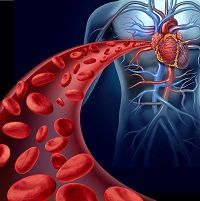Is Transesophageal Echocardiography Necessary Prior to Atrial Fibrillation Ablation in Patients on Novel Oral Anticoagulants?
A large study found no need for transesophageal echocardiography in atrial fibrillation (AFib) patients who use novel oral anticoagulants for at least 4 weeks before undergoing catheter ablation.

A large study found no need for transesophageal echocardiography in atrial fibrillation (AFib) patients who use novel oral anticoagulants for at least 4 weeks before undergoing catheter ablation.
Â
The prospective multicenter registry enrolled 970 patients, 824 of whom (85%) had non-paroxysmal AFib. There were 514 apixaban users (53%), 456 rivaroxaban users (47%), 636 men (65.6%) and 334 women (34.4%). The mean age for all patients was 69.5 years ± a standard deviation of 9.0 years. The average CHA2DS2-VASc score was 3.01 ± 1.3 for all patients, and some 609 patients (62.8%) had a CHADS2 score ≥ 2.
Â
Intra-cardiac echocardiograms were performed on all patients. The procedure ruled out thrombus in all 692 instances (71%) when physicians managed to visualize the left atrial appendage and it detected “smoke†in 407 patients (42%).
Â
All patients received heparin bolus before transseptal catheterization to maintain an activated clotting time above 300 seconds. A subset of 86 patients underwent brain diffuse magnetic resonance imaging, which detected silent cerebral ischemia in 2 of those patients and a transient ischemic attack in a single rivaroxaban user with longstanding persistent AFib.
Â
“Our study illustrates that performing AFib ablation while on uninterrupted apixaban and rivaroxaban without transesophageal echocardiography is feasible and safe,†the investigators wrote in Heart Rhythm. “This finding has important clinical and economical relevance.â€
Â
The intracardiac echocardiograms that study patients underwent are both faster and cheaper than transesophageal echocardiograms. They also avoid the risk of injuries to the larynx and esophagus that can result from transesophageal echocardiograms.
Â
Â
That said, physicians must become skilled in using intracardiac echocardiography in order to consistently visualize the left atrial appendage and, as the results of the study indicate, not all physicians possess the skill. Those who took part in the study failed to get the image they needed to check for thrombus in nearly a third of all patients.
Â
Effective anticoagulation prior to catheter ablation should prevent thrombus formation, which has led some to hypothesize that the use of novel oral anticoagulants (NOACs) might dramatically reduce the incidence of thrombus by eliminating the chance of patients using a non-effective dose of anticoagulant. This, in turn, might reduce or eliminate the need for pre-ablation echocardiography.
Â
However, another recent study that compared thrombus rates before ablation in NOAC patients and warfarin patients found no significant differences.
Â
The study team compared 183 AFib patients who had been using NOACs for at least 4 weeks before scheduled ablation and 205 AFib patients who had been using warfarin for at least 4 weeks before scheduled ablation.
Â
Transesophageal echocardiography detected left atrial thrombus on 4.4% of the NOAC patients and dense spontaneous echocardiographic contrast on another 1.6% of the NOAC patients. The results for warfarin patients were statistically similar.
Â
“Despite ≥4 weeks of anticoagulation, the rate of left atrial thrombus in patients on NOACs before catheter ablation of AFib or atrial flutter was 4.4%,†the study authors wrote in JACC Clinical Electrophysiology. “This suggests that continuous NOAC therapy does not eliminate the need for transesophageal echocardiography before catheter ablation of AFib.â€
Â
The issue is far from settled, though. The latest consensus ablation recommendations from the Heart Rhythm Society, the European Heart Rhythm Association and the European Cardiac Arrhythmia Society say there is no consensus about when to perform transesophageal echocardiography before catheter ablation.
Â